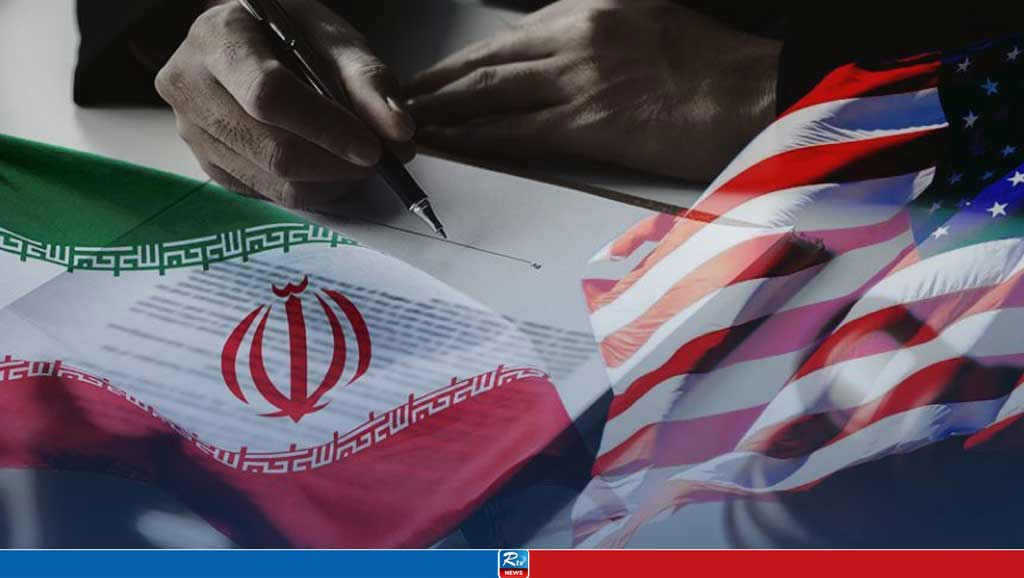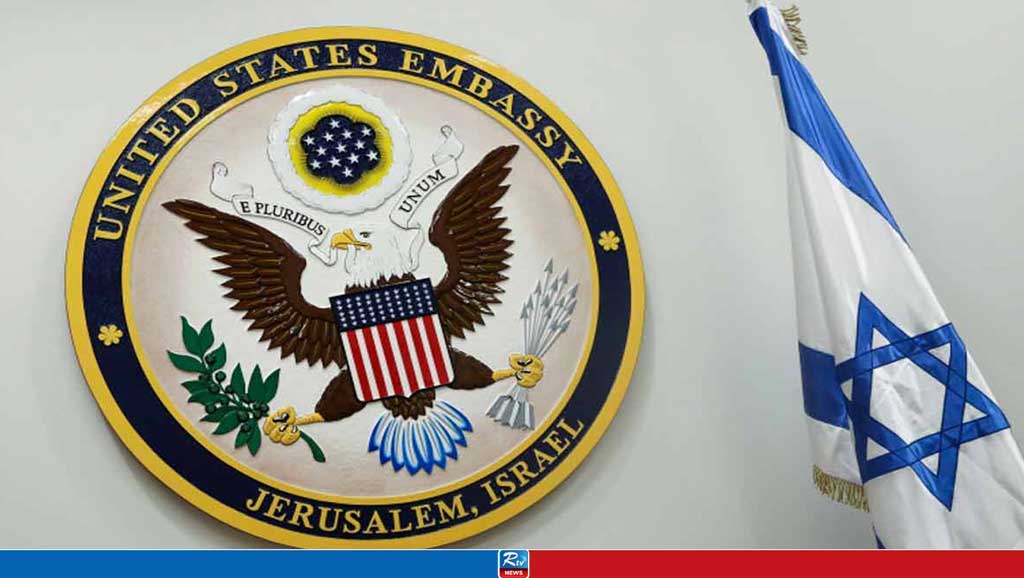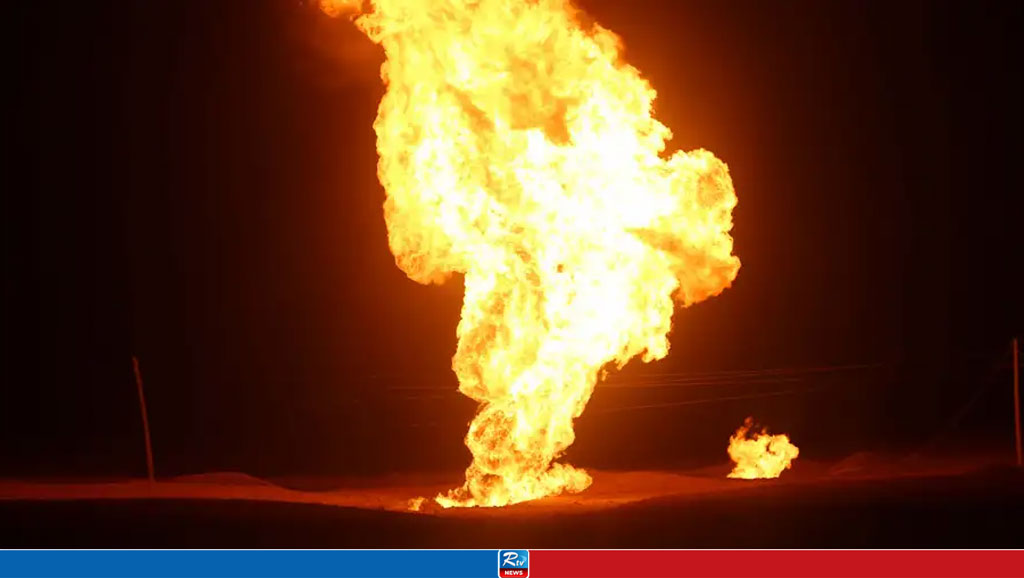Pakistan and Iran say they do not want escalation
After Pakistan fired at targets on Iranian territory in retaliation for attacks carried out by Iran on Pakistani territory, both states now say they want to defuse the situation.
The military response was followed by a warning. On January 18, senior security sources in Pakistan said that the armed forces were on "extremely" high alert and that any further "misadventure" from the Iranian side would be met "forcefully."
Pakistan fired at targets on Iranian territory, particularly in the border town of Saravan, after Iran targeted militants on Pakistani territory two days before. Iranian state television said that three women and four children, who were reportedly not Iranian nationals, had been killed in a village near the border.
Pakistan's Foreign Ministry said it had carried out a "series of highly coordinated and specifically targeted precision military strikes" against "terrorist hideouts" in Sistan and Baluchistan, a province in southeastern Iran.
It said the strikes were carried out "in light of credible intelligence of impending large-scale terrorist activities" and that several "terrorists" had been killed. Iranian state media reported the deaths of nine people.
'Diversionary maneuver by Islamic Republic'
Iran, for its part, not only conducted attacks on Pakistani territory, but earlier this week also attacked targets in Syria and Iraq. Several Iranian missiles hit Erbil, the capital of the autonomous Kurdistan region in northern Iraq.
IRNA, Iran's state news agency, reported that Revolutionary Guards paramilitary units had attacked "a spy headquarters" of Mossad, Israel's national intelligence agency, as well as a "gathering of anti-Iranian terrorist groups." According to Iraqi reports, at least four civilians were killed and six injured in the attack.
The Revolutionary Guards said that in occupied Syria they had "identified and destroyed" the gathering places of commanders of the so-called Islamic State (IS) terror group, by firing a series of ballistic missiles.
Domestic and regional motives
Sara Bazoobandi from the German Institute for Global and Area Studies (GIGA) said the strikes were linked to blasts that occured in early January in the Iranian city of Kerman, near the grave of the former Revolutionary Guards commander Qassem Soleimani, who was killed by the US in 2020.
Islamic State claimed responsibility for the January attack, which killed approximately 90 people. "The government has barely commented on the attack so far," said Bazoobandi, who added that little was known as to why. "In particular, the government and security authorities cannot explain why they were unable to prevent such an attack."
Bazoobandi said Israel's deadly late December airstrike on Sayyed Razi Mousavi, a Revolutionary Guards general in Syria, also caused considerable consternation among the Iranian regime's supporters.
She said that if the regime was now attacking targets beyond its borders in an unsystematic way, it was to demonstrate that it is still strong. "This would also fit in with the explanation that the Kurdish businessman killed in the attack in Syria was a spy working for Israel. Ultimately, the regime's aim is to keep its supporters happy with random attacks."
Political scientist Ali Fathollah-Nejad, the director of the Center for Middle East and Global Order (CMEG), a Berlin-based think tank, had a similar view. On X, formerly Twitter, he wrote that Iran's attacks were "primarily a diversionary maneuver by the Islamic Republic, motivated by domestic and regional concerns."
"But this Iranian strategy is not succeeding. […] Instead, this is now turning into a diplomatic fiasco."
'Pakistani sovereignty was violated'
However, the motives behind the attack on Pakistan remain unclear. Mola Bakhsh Dashti, a local in Koh-e-Sabz in the southwestern Pakistani province of Balochistan, said that there had long been tension: "This is not the first incident. We are used to attacks by Iranian forces. The only difference is that people died, so Pakistan retaliated, and people came to know about the incident. If it had been like one of the usual attacks, where people remain unharmed, no-one would have been bothered."
According to a former spokesman for the militant separatist organization Jaish al-Adl, which wants independence for the Iranian province of Sistan and Baluchistan and has claimed responsibility for a series of attacks on the Iranian military in the past, the government in Tehran did not originally plan to shell Pakistani territory. "The government tried to target us in Iran, and I assume by mistake they misfired the missiles," he told DW on condition of anonymity.
Pakistani security expert Raashid Wali Janjua told DW that his country had to react. "Pakistani sovereignty was violated, and Pakistan was under pressure to respond as civilians were targeted," he said, adding that now the aim was not to escalate but to "defuse" the situation. "Iran's response will play an important role in [terms of] further clarity. […] We hope that now they will act as a responsible country. And, after these two sad incidents, they will stop the escalation."
Tehran plays down situation
For their part, Iranian authorities and state media have tried to play down the significance of Pakistan's counterattack. The Tasnim News Agency, which is close to the Revolutionary Guards, published a video in which Mumtaz Zahra Baloch, the spokeswoman for Pakistan's Foreign Ministry, insisted that Pakistan had great respect for the people of Iran.
At a news conference in the Pakistani capital Islamabad, she stated: "Pakistan considers people of Iran as our friends and brothers and we have no interest in escalating any situation. […] We also believe that dialog and cooperation is essential for confronting common challenges, including the menace of terrorism and we would like to continue to engage with all neighbors including Iran."
On Thursday morning, the Iranian interior minister spoke to the press about what had happened in the Iranian city of Saravan. He mentioned "explosions" but avoided using the term "attack."
Sistan and Baluchistan, the southeastern Iranian province where Saravan is located, is the poorest in the country.
There have been numerous social media comments by Iranians who are angry about the Iranian government's response. Khalil Balouch, an activist from Sistan and Baluchistan, wrote on X that the damage caused by Pakistan's missile attacks on Saravan was considerable: "Buildings have been destroyed, the pictures are heart-breaking. And on TV they are brazen enough to say that no Iranians were killed in the attack."
21 Jan 2024,19:22




















 Live Tv
Live Tv









